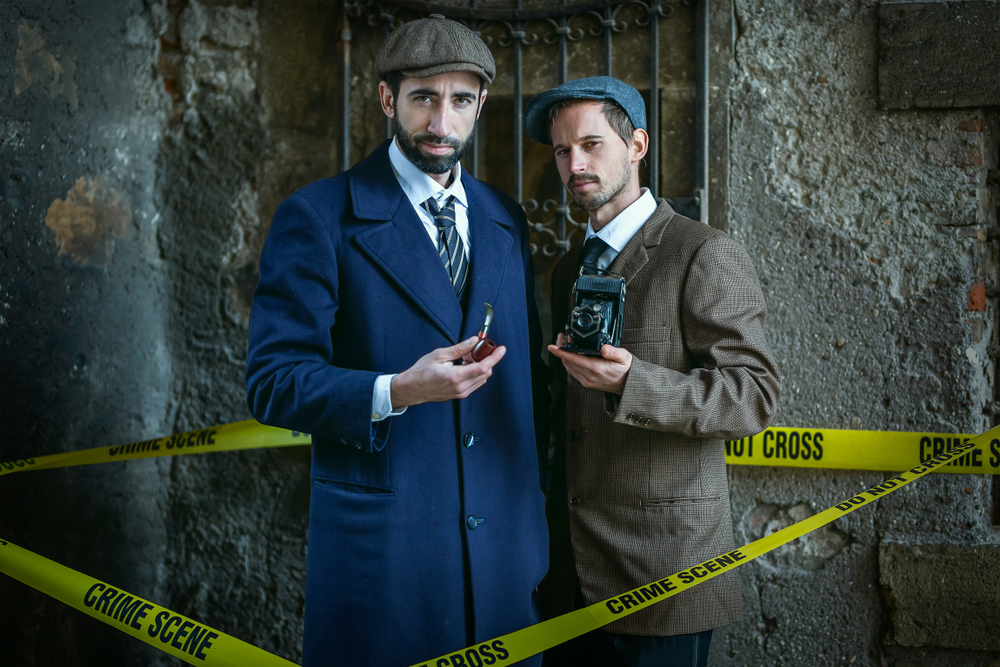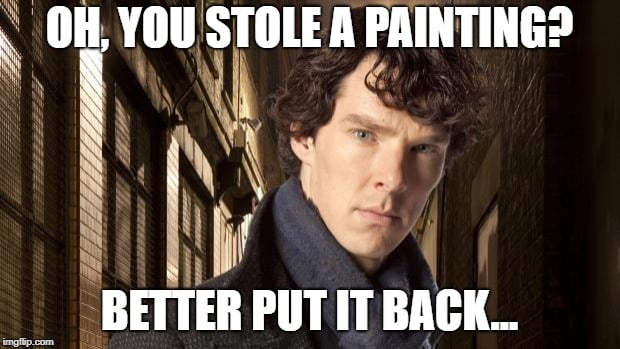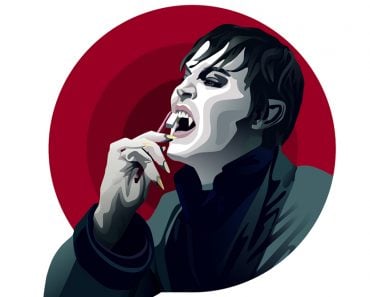Table of Contents (click to expand)
Detective novels (as we know them today) were born in Europe, as the ideas of reason, logic, and science gained momentum, while urbanization and industrialization caused an increase in crime rates in new burgeoning cities.
Romance, heroism, and tragedy as genres have run parallel with human civilization, but crime fiction and mystery novels have their roots in the 1800s. To be more precise, the first piece of crime fiction was written in 1841, which seems quite late!
Why is it that detective novels originated less than 200 years ago? What’s the “mystery” there?

Recommended Video for you:
What Is A Detective Novel?
Detective fiction is a subgenre of crime fiction and mystery. A typical narrative of a detective novel involves a crime, usually a murder, a few convincing suspects with alibis that are in question, and a police force that hires a detective to solve the crime. The job of the detective is to find out the true murderer through observation, interrogation and deductive reasoning.
The final resolution of the plot takes place when the murderer is identified, justice is served, and peace is restored.
The thrill of detective fiction not only lies in identifying the least suspected killer, but in also tracing the detective’s methodology—how everything was right in front of their eyes, yet only the detective could manage to read the fine print of the plot.

Origin Of Detective Novels
The first official detective story, The Murders in the Rue Morgue, was published in 1841 by Edgar Allan Poe. The Moonstone (1868) by Wilkie Collins was the first detective novel.
The 1800s brought significant changes to society with respect to industrialization, the growth of science, and increased crime rates.
Simply put, there couldn’t be detective novels without detectives, right?
Literature And Society
Industrial Revolution
The industrial revolution began in the late 18th century and resulted in significant changes to society. Perhaps the largest change was the transition from rural to city life. With modernization and industrialization, people left their villages where everyone knew each other, to work in cities, where people were strangers. This sudden transition led to an increase in crime rates in the cities. People seemed to have lost their morals. The cities’ infrastructure and sanitation were unable to deal with this surge.
Cities set up their first police investigative bodies to combat crime rates. The profession of detectives also emerged during this time. Lo and behold, it turned out to be the perfect impetus for writers to dive into crime fiction.

Era Of Logic
With reason and logic rising among the populace, and science overtaking trust in religion, death was no longer considered a mere act of God. With the invention of the printing press and higher literacy among the masses, people were interested in finding out the cause of death. This critical thinking among the masses helped writers frame the characters of the detectives who observe and deduce the truth of each killer.
It’s also interesting to note that with industrialization, the basic necessities of life were taken care of. This gave rise to more leisurely hours that people could devote to pursuing their passions, and reading detective stories became one of them.
Forensic Science
In the nineteenth century, forensic departments were set up that provided scientific evidence to convict murderers and relay the true cause of death.
This further fueled writers’ imaginations, such as identifying fingerprints and conducting DNA tests of strands of hair or lipstick marks on the glass at a crime scene. The autopsies of victims provided evidence of poisoning, strangulation, type of weapon, time and manner of death, all of which further aided writers in their plots.

Setting Of Detective Novels
Early detective novels were usually set in European countries, where the Industrial revolution first took its roots. The plots usually dealt with bourgeois society and the elite. The stories were usually set in cities, rather than villages, as crime rates were higher in urban settings, which made the plot more convincing. People flocking to London and Paris made law and order increasingly difficult in those cities, thus serving as the perfect setting for crime fiction. Even American writers based their plots in European cities, as American investigative bureaus weren’t as centralized as their European counterparts.

And just like those physical locations, writers took inspirations from real figures around them.
Take, for instance, the world’s most beloved private detective, Sherlock Holmes. The Scottish writer, Arthur Conan Doyle, found a muse in Dr. Joseph Bell. Dr. Bell served as a surgeon to Queen Victoria and was renowned for his observations when treating his patients.
He could guess the profession of his patients by looking at their hands, the origin of a person by observing his accent, and whether a man was a cobbler by looking at his trousers. Sherlock Holmes’ deductive reasoning and quick wit in solving crimes is a reflection of Bell’s ability to observe and diagnose his patients!
Types Of Detective Novels
Although detective fiction itself is a subgenre of crime fiction, it has branched out into various types of novels today.
There are the ‘Whodunit’ novels, which have two narrative styles. In the first style, the reader is aware of the murderer from the beginning. The other style is where it is the detective who uncovers the mystery by collecting evidence, clues and testimonials from witnesses. The Mysterious Affairs at Styles (1920) by world-renowned crime fiction writer Agatha Christie is an example of this genre.
Then there are, of course, serial killer thrillers that deal with multiple murders. The police investigation traces patterns of the killer to finally hunt him down. The Hannibal Lecter series by Thomas Harris is an example of that type.

Children are as interested as adults in crime fiction, which brings us to child detectives as a genre. A group of children work together to help in solving mysteries and work as child detectives. The Scooby-Doo Mystery and The Famous Five by Enid Blyton are examples of this genre.
Detective novels are no longer books, but have also transformed into cartoons, series, documentaries and even movies. Since crime is a universal problem, its thrill will never stop captivating audiences, who love donning the detective hat and vicariously experiencing different lives.
References (click to expand)
- Detective Fiction: Its Use as Literature and History. Yale University
- ARM Twyning. detective narrative and the problem of origins in 19. The University of Pittsburgh
- The First Hundred Years of Detective Fiction. 1841-1941. Indiana University
- Detective Fiction: Genre, Types & Examples | StudySmarter. studysmarter.co.uk












